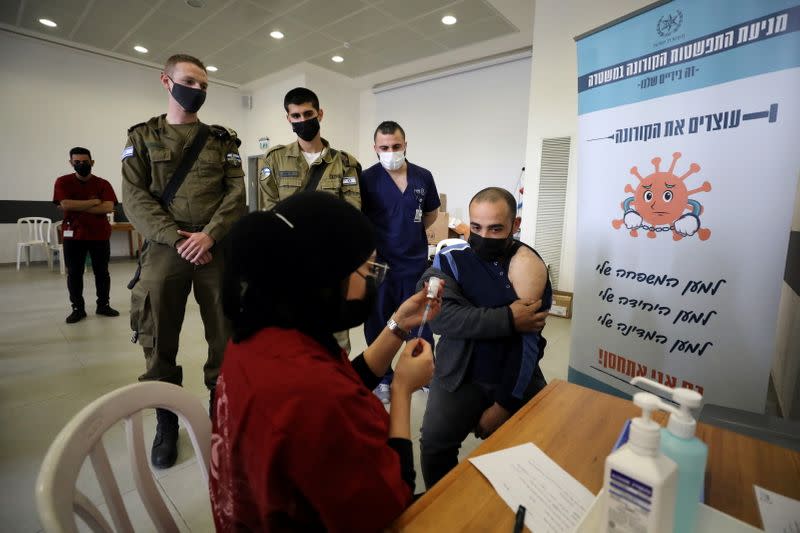By Zainah El-Haroun
RAMALLAH, West Bank (Reuters) – Palestinian hospitals are full and intensive care units operating at 100% capacity with coronavirus patients in some Israeli-occupied West Bank areas, Prime Minister Mohammad Shtayyeh said on Tuesday.
Palestinian cities have introduced total blockages in the past two weeks to control rising COVID-19 infections, even as neighboring Israel begins to lift restrictions as it proceeds with one of the fastest vaccination campaigns in the world.
“The percentage of hospital occupancy in some areas has reached more than 100%,” said Shtayyeh in Ramallah, one of the West Bank cities where his Palestinian Authority (PA) has limited self-government.
“The number of victims is increasing and the number of deaths is increasing daily, which forces us to take strict, direct and unprecedented measures”.
The West Bank and Gaza, home to 5.2 million Palestinians, have received about 34,700 doses of vaccines to date. These came from small donations from Israel and Russia, as well as 20,000 sent by the United Arab Emirates to Gaza.
Meanwhile, in Israel, restaurants reopened on Sunday, while the country maintained a rapid pace of mass vaccinations.
“I brought millions of doses, now I will have to bring tens of millions of doses. Currently, I am in negotiations with Pfizer and Moderna to bring more,” Prime Minister Benjamin Netanyahu told Israeli Army Radio, campaigning before of the March 23 elections.
Israel gave 53% of its population of 9 million people at least one dose of the Pfizer / BioNTech COVID-19 vaccine, according to data from the Ministry of Health, and 38% received both doses.
The contrast did not go unnoticed among the Palestinians.
On Monday, Israel extended its vaccination program to include Palestinian workers working in Israel and in their West Bank settlements.
Many Palestinians argue that Israel is neglecting its obligations as an occupying power by not including them in the mass deployment.
“The number of vaccinations in Israel is really high,” Saji Khalil, 75, told Reuters. “Even the Palestinian workers that they vaccinated, they did it to serve the Israeli community, not to care for the welfare of the workers.”
Israeli officials say that, according to the Oslo interim peace agreements of the 1990s, the Palestinian Authority is responsible for vaccinating its population.
Many Palestinians are dissatisfied with their leaders. The PA was attacked by human rights groups last week, after admitting that it had sent 10% of the doses of COVID-19 it received to VIPs.
Firas Narawesh, from Ramallah, said the government did not provide vaccines to ordinary Palestinians and “distributed the vaccines unfairly and unequally, with evident favoritism and corruption”.
(Additional reporting by Adel Abu Nimeh and Ismael Khader in Ramallah; Editing by Stephen Farrell and Mark Heinrich)
